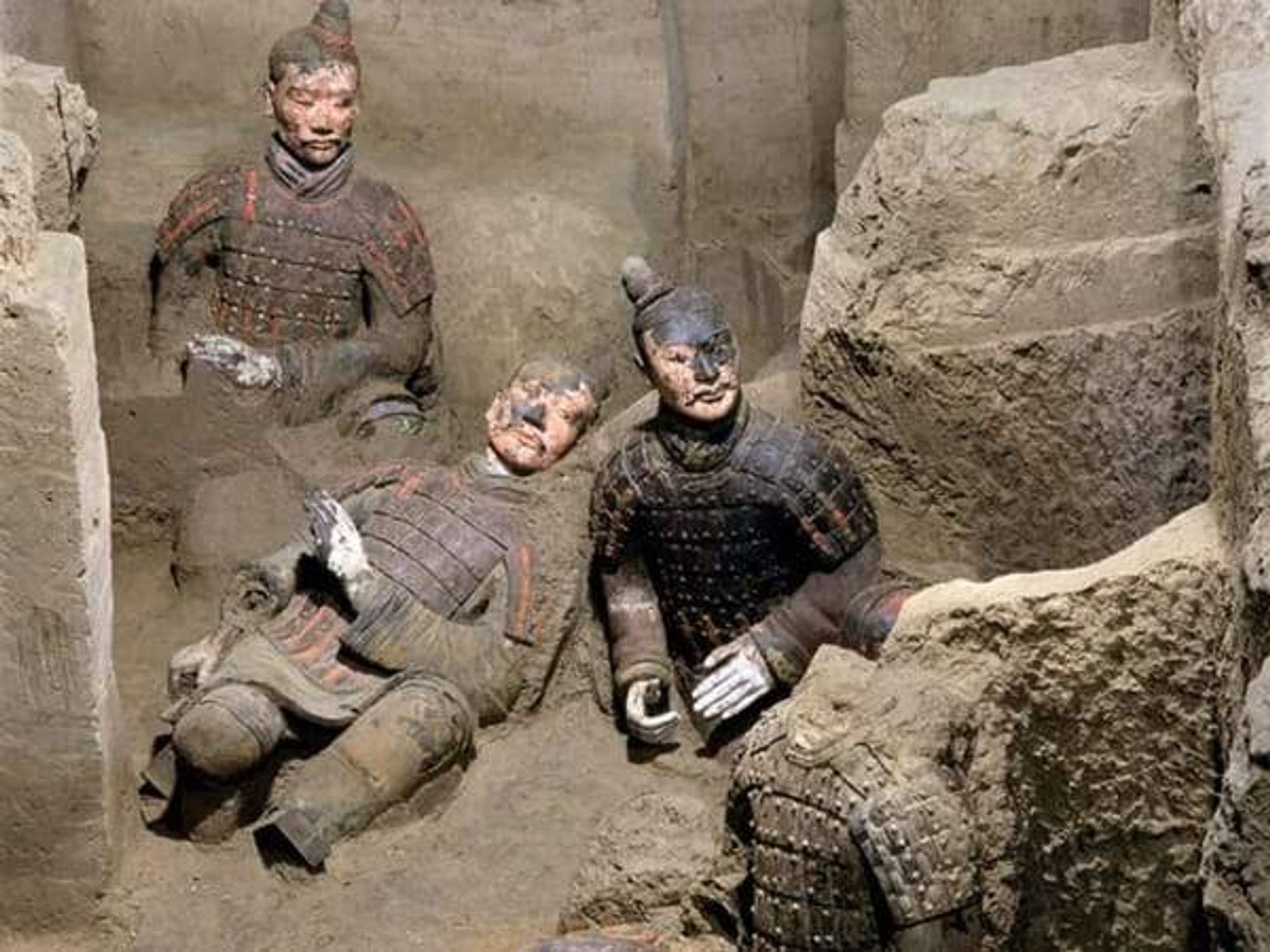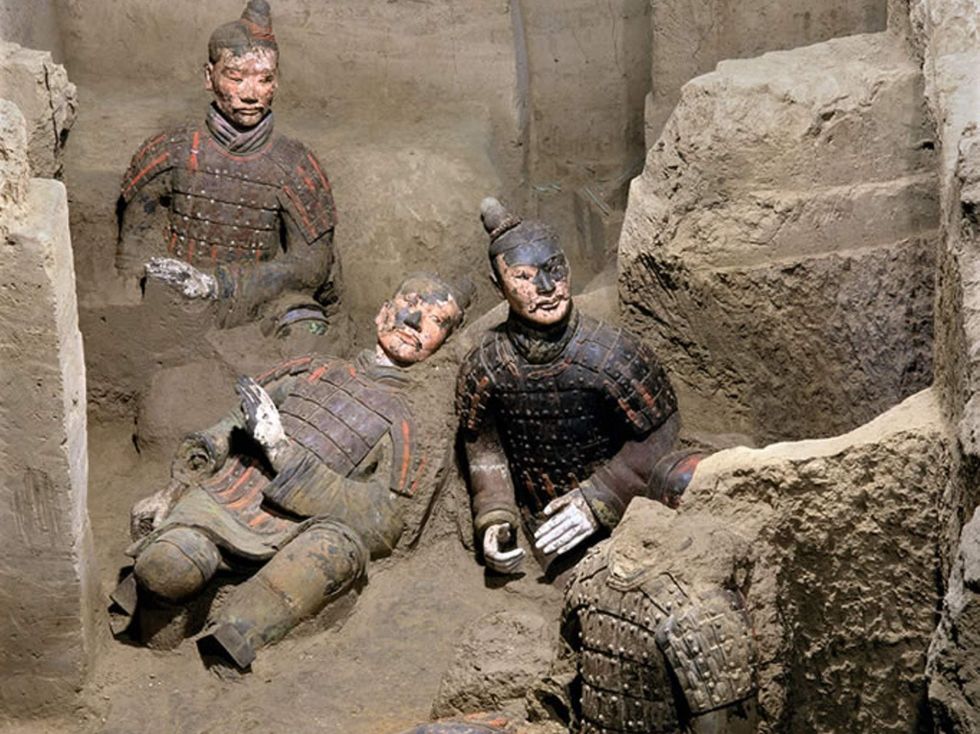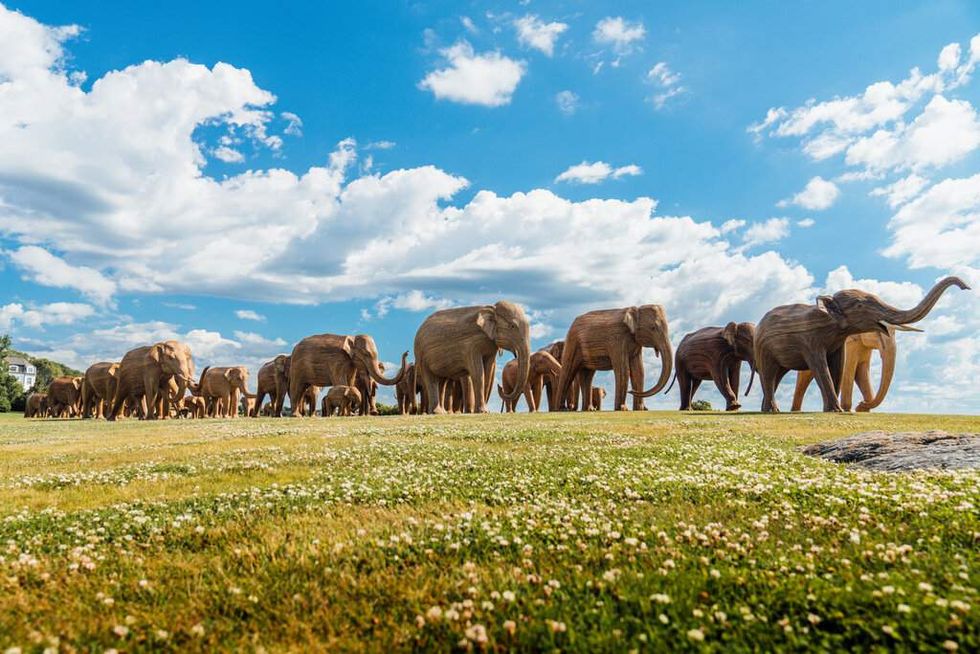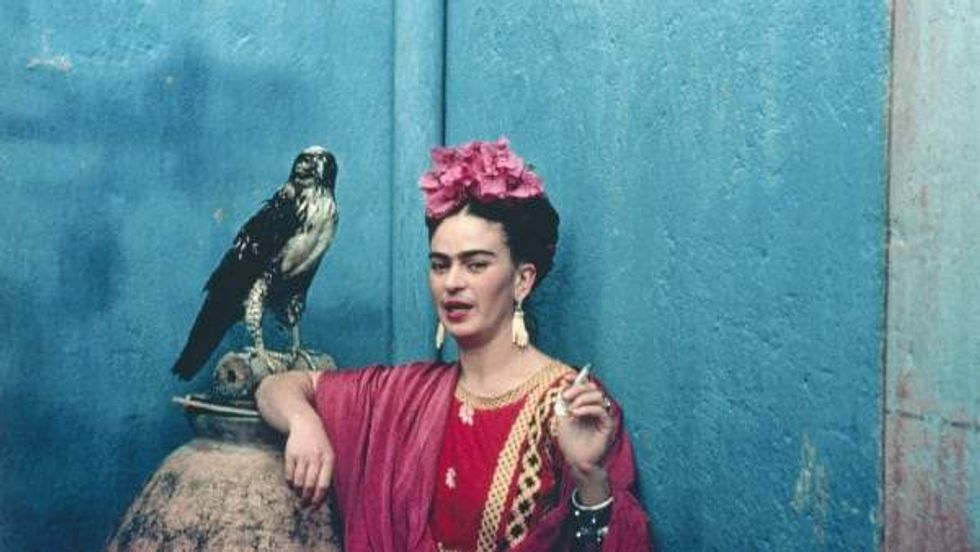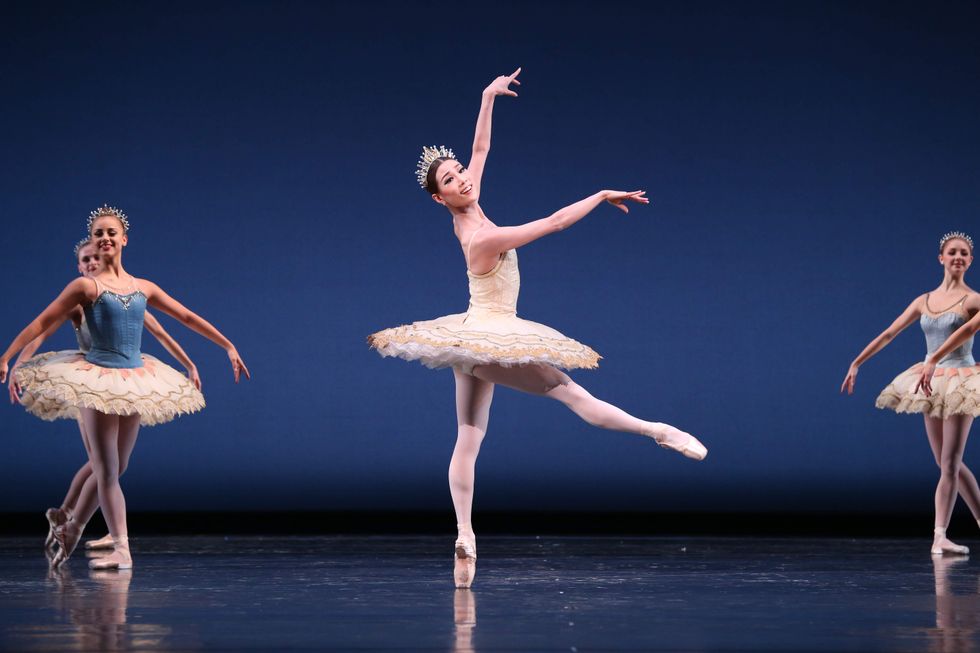The Arthropologist
Adventures through art: Land, sea and far-off places are all part of thecreative canvas
 Emily Johnson in DiverseWorks' "The Thank-You Bar"Photo by Cameron Wittig
Emily Johnson in DiverseWorks' "The Thank-You Bar"Photo by Cameron Wittig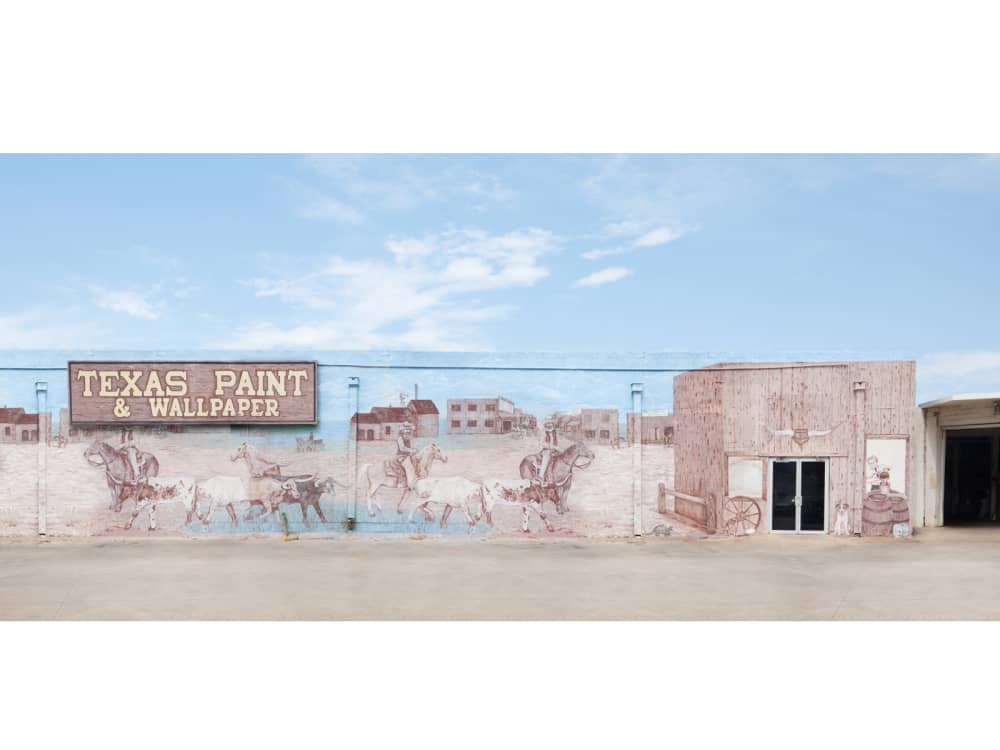 Leigh Merrill, "Texas Paint and Wallpaper," 2010
Leigh Merrill, "Texas Paint and Wallpaper," 2010 Alfred Jacob Miller, "Grizzly Bear Hunt," Bank of America CollectionPhoto by John Lamberton
Alfred Jacob Miller, "Grizzly Bear Hunt," Bank of America CollectionPhoto by John Lamberton Joey Lehman Morris, "Black Mountain Detachment:Two Nights, From Waxing to FullyStated," 2008
Joey Lehman Morris, "Black Mountain Detachment:Two Nights, From Waxing to FullyStated," 2008 Matthew Ritchie, "Morning War," 2008, Collection Albright-Knox Art Gallery,Buffalo, New York. Albert H. Tracy and Charlotte A. Watson Funds, by exchange,2010Photo by Todd White & Son. Courtesy White Cube, London, and Andrea RosenGallery, New York. © 2010 Matthew Ritchie
Matthew Ritchie, "Morning War," 2008, Collection Albright-Knox Art Gallery,Buffalo, New York. Albert H. Tracy and Charlotte A. Watson Funds, by exchange,2010Photo by Todd White & Son. Courtesy White Cube, London, and Andrea RosenGallery, New York. © 2010 Matthew Ritchie
I heard the ice crack today, a shrill wind too, possibly people trudging through the Arctic in snow shoes.
No, I didn't go anywhere. I hate to travel. I do all my adventuring through art. I was at Upside Down: Arctic Realities at The Menil Collection, where precious objects from Ekven in Russia, Ipiutak in Alaska, and Old Bering Sea cultures float in a sea of white, while eerie sounds intermittently penetrate the icescape.
The Yup'ik Dance Mask from 1880 caught my attention, mostly because I'm on my way to see Emily Johnson this weekend, who is of Yup'ik descent, perform in her piece, The Thank-You Bar, at Diverseworks as part of This is Displacement: Native Artists Consider the Relationship between Land and Identity, which Johnson curated with Carolyn Lee Anderson.
I wonder, will she bring Alaska to me or her displacement from Alaska?
Artists, like everyone else, become attached to land and sea, a sense of home, place and belonging, all enchanted by our history, a longing for the past and an imagined future. "Where?" often comes before "What?" in our human inquiry.
So it makes perfect sense that the surf and turf thread surfaced in my hometown land/lake of Buffalo, N.Y.,while traipsing through the Albright-Knox Art Gallery's exhibit Surveyor. Zhan Wang's Urban Landscape Buffalo 2005-2010, crafted from stainless steel pots, pans and kitchen utensils, re-framed my treasured birthplace, while Matthew Ritchie's On Morning War spills a map of the universe on the walls and floor.
Place gets even more abstract with David Fulton's painting, the surface from the shore ( across and into), as he traces the outline of lakes to achieve his delicious canvases, which conjure all manner of biological processes, from bone to waterways. "The title suggests the shifting of visual positions one experiences when standing on the constantly reforming edge of a large body of water," Fulton explains.
Fulton's work has always had a particular resonance for me as someone who grew up on the shores of Lake Erie. But I've lived in Houston longer than lived in western New York, so Texas is part of my ground story now, too. So it's no surprise that I felt a sense of nostalgia looking at Leigh Merrill's photos of Texas as part of Into the Sunset at Lawndale Art Center.
Merrill's images are constructed from hundreds of different photographs. "I wanted to create an image that showed an expansive characterization of the west, where the fiction and the 'real' place blended into one another," she says. "I knew that the typical parking lot that we see with a storefront needed to be altered so that the image further disrupted our understanding of place."
For more wild west mythology, you had better run to Romancing the West: Alfred Jacob Miller in the Bank of America Collection, because it closes on May 8 at the MFAH. There's nothing remotely romantic about PLAND's (Practice Liberating Art Through Necessary Dislocation) approach to the West. Independent pioneer artists and curators Nancy Zastudil, Erin and Nina Elder make a patch of Taos, N.M., land their canvas. The team's off-the-grid residency program welcomes Suzanne Husky and collaborative duo Joshua Hoeks and Ryan Rasmussen, who will be building necessary structures to survive on a piece of land.
Then there are those who dwell in the intersection of land and sea, like Zach Moser and Eric Leshinsky of The Shrimp Boat Projects, at The Cynthia Woods Mitchell Center for the Arts at UH. These two actually took to the sea.
"We identified shrimping as one of the few remaining ways in our region that people were working in a direct connection to the landscape, and that, by participating in this way of working, we would have access to insights into the foundations of our regional identity," Moser says from his shrimp boat (I imagine). "It's our hope to come to a deeper understanding of our place that we will be able to synthesize the often competing interest of economy, culture, and ecology."
The land/sea tangle sometimes ends up tragically, as in Jiri Kylian's Forgotten Land, which launched Houston Ballet's season this year. Kylian's classic ballet draws its power from the idea of the sea overtaking the land. How strange that Hurricane Rita caused the cancelation of this ballet's premiere in 2005.
Equally poignant is HGO's new chamber opera, Your Name Means the Sea, an HGOco Song of Houston: East +West project, by Azerbaijan composer and librettist Franghiz Alizadeh, linking the Azerbaijani community in Houston with our sister city, Baku on May 21, 24 and 26. Song and dance carry place, which I imagine we will see when the Azerbaijan State Dance Ensemble performs at Ifest on May 7 and 8.
Earth and water doesn't always have to be so serious. There's a poetic wit to Joey Lehman Morris' mountain landscapes, last seen at FotoFest in Assembly: Eight Emerging Photographers From Southern California. I like the way Morris props up Black Mountain Detachment: Two Nights, From Waxing to Fully Stated against the wall.
We do tend to prop up our mythic landscapes, don't we? Morris took his conversation between photography, geology, time and place a step further in But First, Define the Mountain, at the California Museum of Photography, UC Riverside.
I wasn't the only one cracking a smile watching Hillerbrand + Magsamen's Elevated Landscape video as part of Measured at Lawndale, which runs through June 4. Stephan Hillerband places a sprinkler on his raised piece of real estate, while Mary Magsmen takes an ax to the platform. Lawns manufacture fake land as silly, water gobbling inventions, never mind the chemicals it takes to keep them green.
The toxic details will be revealed in a screening of Brett Plymale's documentary A Chemical Reaction: The Story of a True Green Revolution on May 6.
Lawns are unreal all right, but so are invented places, like Mary Temple's dreamy tree faux shadow installation, Northwest Corner, Southeast Light at Rice University Art Gallery. You will recognize the place even though it doesn't exist. It felt like home. That's how potent place is to us.
Emily Johnson in The Thank You Bar at DiverseWorks
Honey, I chopped down the lawn today. Watch a clip of Hillderband + Magsamen's Elevated Landscape, now showing at Lawndale
